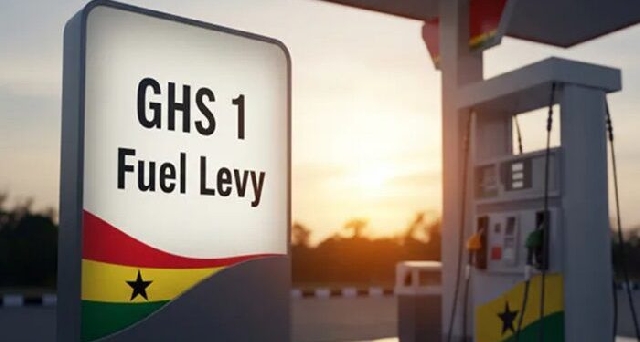Ghana implements controversial “Dumsor Levy” amid public outcry
 D-Levy
D-Levy
The government of Ghana has officially rolled out its new “Dumsor Levy,” a controversial GHS 1 charge per litre of fuel, aimed at supporting the ailing power sector.
The measure, which took effect today under the newly passed Energy Sector Levies (Amendment) Act, 2025, has ignited sharp backlash across the country.
Passed under a certificate of urgency, the law adds to the growing list of fuel-related taxes, pushing total levies on petroleum products above 33%, according to critics.
The levy is intended to help stabilise the national grid, service the sector’s ballooning US$2.5 billion debt, and ensure a consistent electricity supply.
However, the policy has been met with widespread resistance from transport unions, businesses, civil society groups, and the political opposition.
The African Institute of Energy Sustainability (AIES) strongly condemned the levy in a press release, calling it “unjust, economically flawed, and socially unfair.” AIES Executive Director, Dr. Samiu Kwadwo Nuamah, argued that the additional cost will hit ordinary Ghanaians the hardest.
“More than 77% of all fuel consumed in Ghana is used for transportation, not power generation.
This levy disproportionately affects commuters, transport operators, and businesses, escalating prices across the board,” Dr. Nuamah stated.
Minority Leader in Parliament, Alexander Afenyo-Markin, also weighed in, accusing the government of policy inconsistency and poor planning. “This is a shameful retreat and yet another example of trial-and-error governance,” he said, calling for the immediate repeal of the law.
Critics argue that the root causes of Ghana’s energy crisis—such as inefficient power purchase agreements, weak planning, and institutional mismanagement—remain unaddressed. They fear the levy will only burden consumers without offering sustainable solutions.
Government officials have defended the move, maintaining that it is a necessary step to restore the financial health of the energy sector and prevent another wave of debilitating power outages, commonly known as "dumsor."
Source: Classfmonline.com/Cecil Mensah
Trending News

Ghana implements controversial “Dumsor Levy” amid public outcry
01:29
Ghana sidelined as African peers reject LGBTQ+ mandate – CDM
15:14
Minister reaffirms commitment to local governance reforms
09:10
Dr. Omane Boamah calls for calm during chaotic Ablekuma North re-run elections
13:38
E&P vs Azumah Resources: Mining policy clashes with political reality
01:17
CDM demands accountability from Foreign Affairs Ministry over LGBTQ+ vote abstention
15:06
Over 2.3 million Ghanaians are affected by mental health conditions-Minister of Health
02:10
Chief of Staff commends Goldbod staff during working visit
13:09
E&P vs Azumah Resources: Black Volta dispute shakes Ghana’s mining oversight - Minority asserts
01:13
Mahama appoints 26-year-old to Ghana Hydrological Authority board
14:36




